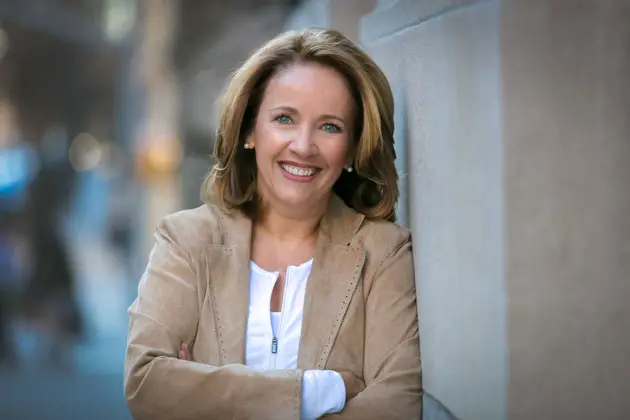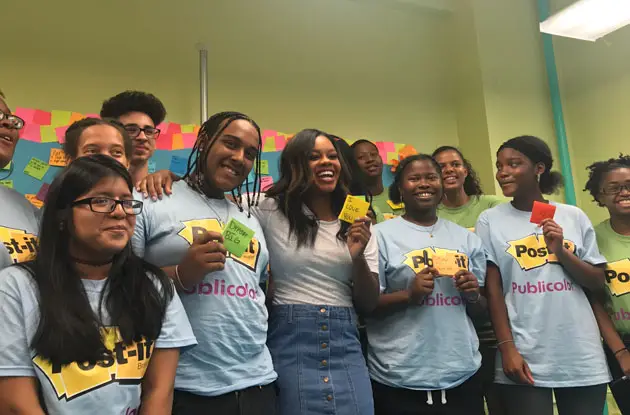Joshua Fields Millburn turned to the philosophy of minimalism, or, finding a more “purposeful life” through people and experiences, rather than possessions. We sat down to learn more about the minimalist movement, how minimalism can work for families, and his book, Everything That Remains, penned with co-author and minimalist Ryan Nicodemus.
Twenty-something corporate executive Joshua Fields Millburn woke up one day to find himself a prisoner of his own consumption. Despite having achieved “the American Dream”—married, with a good job, a spacious home, luxury cars (plural), and a closet full of Brooks Brothers suits—he was unhappy, unfulfilled… and unable to understand why.
Then he stumbled across the philosophy of minimalism, which offered a basic truth that Millburn felt he had been overlooking: People are more important than things. Within a year he had sold his home and the majority of his possessions, left his job and unhappy marriage, and moved to the mountains to write. His new “purposeful life” leaves him calmer, happier, and healthier, with more time for “experiences,” friends, and family.
In his new book, Everything That Remains (Asymmetrical), co-authored with fellow minimalist/best bud Ryan Nicodemus, Millburn details the many ways in which having less “stuff” leads to having more time. And that time, in the eyes of a child, equals love.
Q&A with Joshua Fields Millburn: Yes, You CAN Explore Minimalism, Even if You Have Kids
You gave up 95% of your possessions, including your couch. How does a minimalist judge what to keep and what to discard?
Joshua Fields Millburn: When I first became interested in the philosophy of minimalism, I met a guy (author/traveler Colin Wright) who had everything he owned in one backpack. That was it! He traveled the world, moving every four months. I liked the idea of downsizing, but… I wanted a kitchen table, I wanted pots and pans. So I made minimalism work for my situation. I got rid of what worked for me. I did keep the couch initially, but soon realized it was not adding value to my life (mainly because I had sold my TV!).
You also decided to forego a cellphone for 60 days. How did that go?
When I gave up my cell phone it was really a question of other people managing their expectations of me. People were kind of in shock about it. Eventually, they understood that I wasn’t going to be responding to a call or text immediately, or even that same day—or week. The end result for me was that my face-to-face conversations became more meaningful. I’m a good listener now. I am in charge of my downtime. I no longer have the “twitch”—you know, patting myself down every few minutes to find my phone. I learned that we can all reprogram ourselves. I do have a phone now, but I’ve downsized what I do with it—no email, no games. And it is no longer an appendage.
What happened when you gave up home access to the Internet?
It was the most productive month I’ve ever had. It was very freeing. I was less distracted, more focused, and able to spend time doing the really meaningful things—thinking, writing, talking with my friends. Of course it boils down to how you spend your time online to begin with. Clearly I had been spending a lot of time just pacifying myself. I still don’t have Internet access at home. Now when I go online it’s at a coffee shop or library—but most importantly it has a purpose, a goal.
You’re a single guy. Can minimalism also work for families?
Kids almost intuitively find it easier to embrace minimalism. Minimalists are happier people. Kids notice that benefit right away. They understand that you have more time to spend with them. And trust me, they definitely understand the benefits of not having to clean their room. One family I know has two children who were basically born into minimalism. One of the kids is happy with just his soccer ball and a Nintendo. The other child—you name it, she collects it. It’s truly what works for you. You don’t have to throw everything out and live in a cabin. You just have to reprioritize.
How can parents hope to cut back on the physical clutter that comes with babies, children, and family life?
Well, we all know how to declutter a closet. Really… we do. We just don’t know why. It’s not the most fun task in the world, going to the basement or storage locker and sorting through boxes and boxes of stuff. But remember that it’s all a physical manifestation of mental clutter. The real payoff is to ask yourself, “How might my life be better if I owned less stuff?” The allure of consumerism is a quick fix. We’re always catching up, trying to bring things into our life to bring joy. But really…the cost of those material possessions is far higher than the price tag.
Do you have any other tips for parents hoping to achieve success as a family of minimalists?
One: Lead by example. It’s easy to see someone else’s clutter, but not your own. Two: Let your kids see the benefits. You’ll have more time to yourself and for your kids, you’ll have more money, you’ll be happier, less stressed, and you’ll have more opportunity for experiences. Three: Start small. Minimalism isn’t about deprivation. Remove one possession a day for a month. Then you get momentum. Minimalism gets easier by the day! It took me eight months to pare down my possessions. And don’t forget, everyone has a different ‘flavor’ of minimalism. What works for one person may not work exactly the same for you.
Wanting a sense of security for your family can be a lot weightier than wanting to ensure security for just yourself. Have you seen parents successfully apply minimalism to their lives?
Clearing the clutter from life’s path makes room for the most important aspects of life: health, relationships, passion, growth, and contribution. In this book I talk about one of my mentors, Leo Babauta, who writes the Zen Habits blog. He leads a simplistic life—with his wife and six kids [who are homeschooled]. The truth is, we avoid difficulty in our lives. But minimalism doesn’t have to be difficult: A five-degree pivot can still change your direction.
Curious to learn more about minimalism and hear from The Minimalists, Joshua Fields Millburn and Ryan Nicodemus? Check them out on tour with their book, Everything That Remains, at local stops in New York City and Hartford, CT.




















